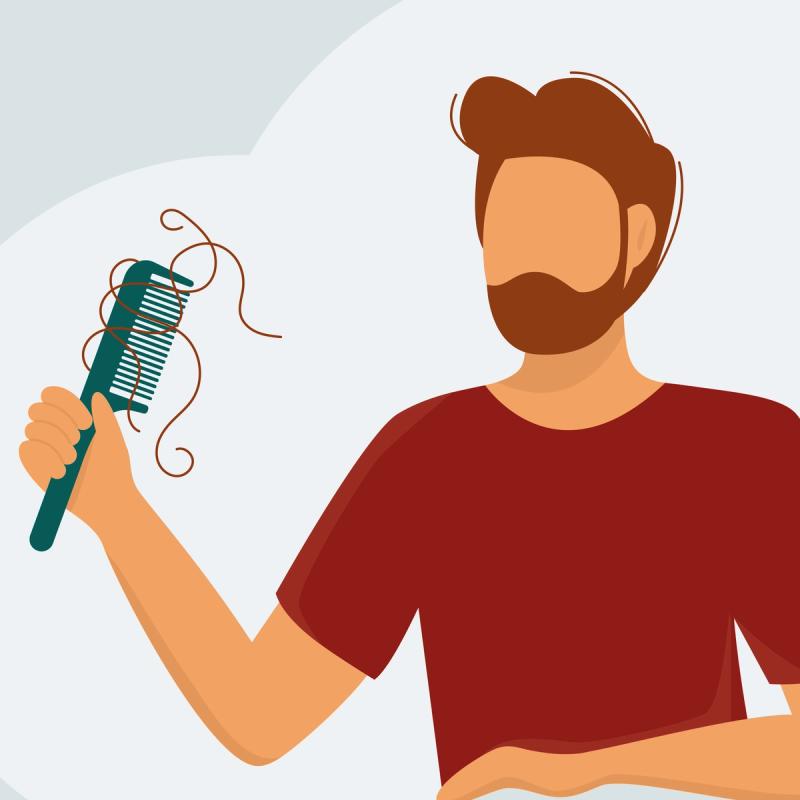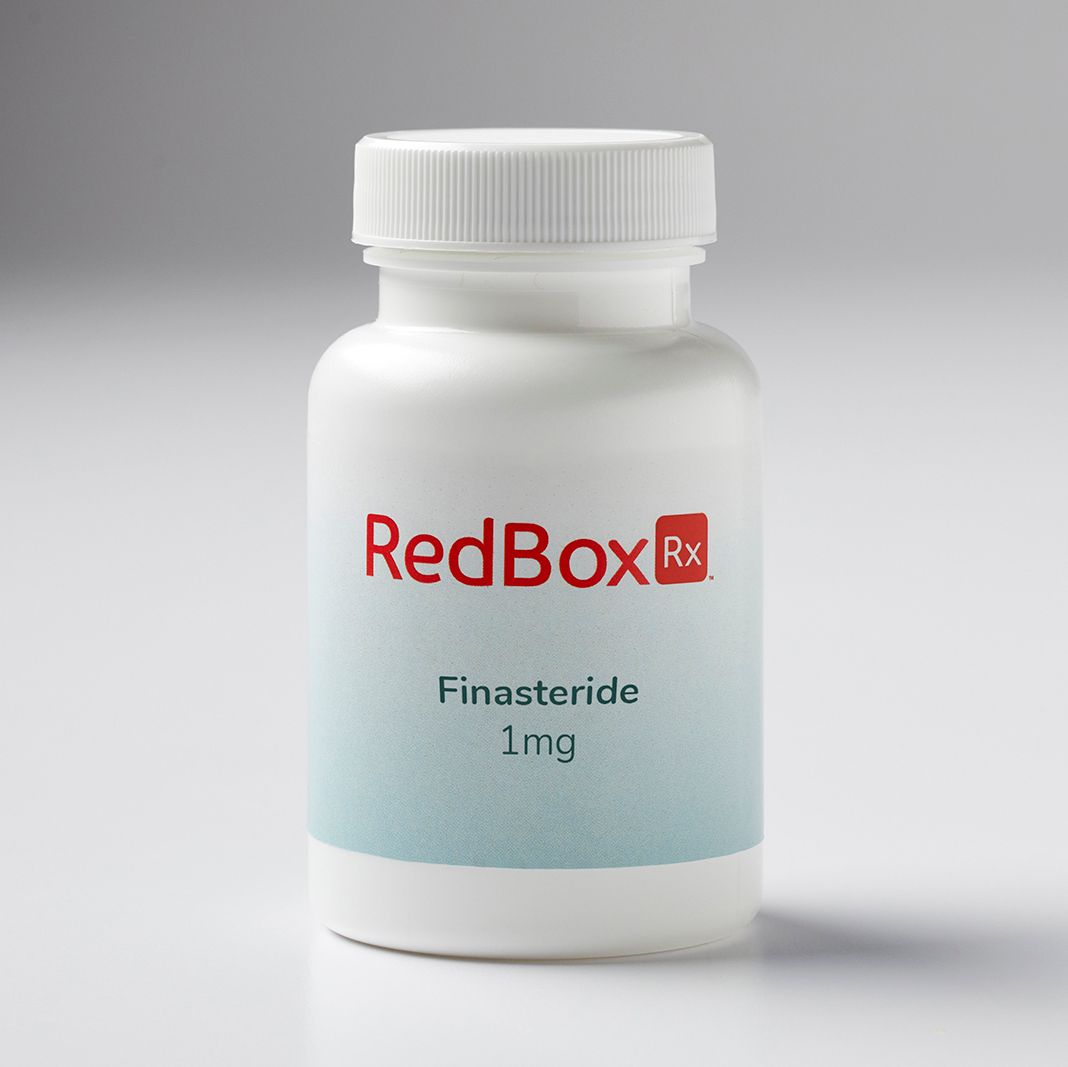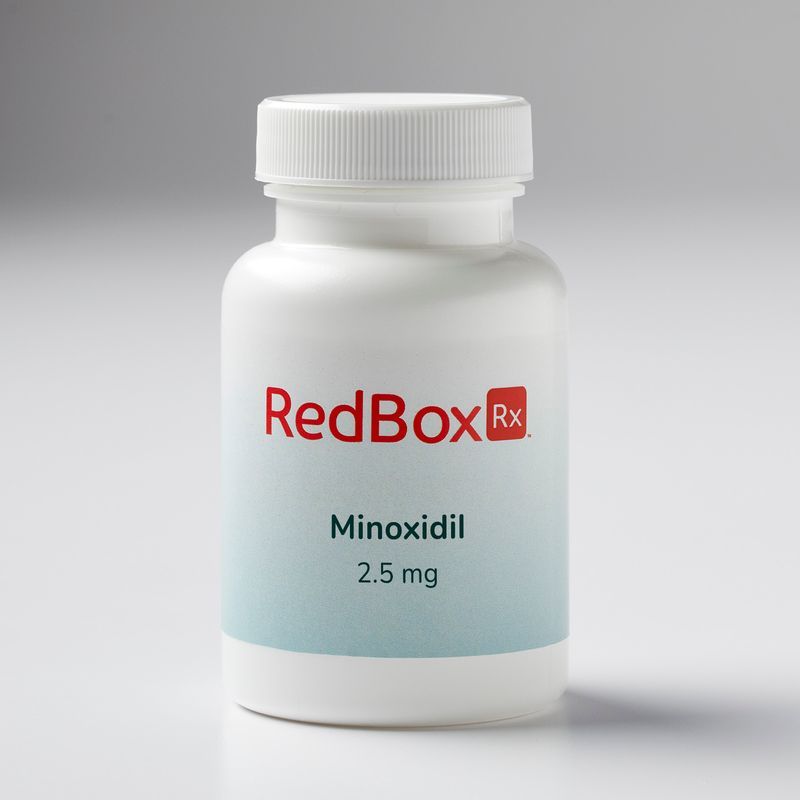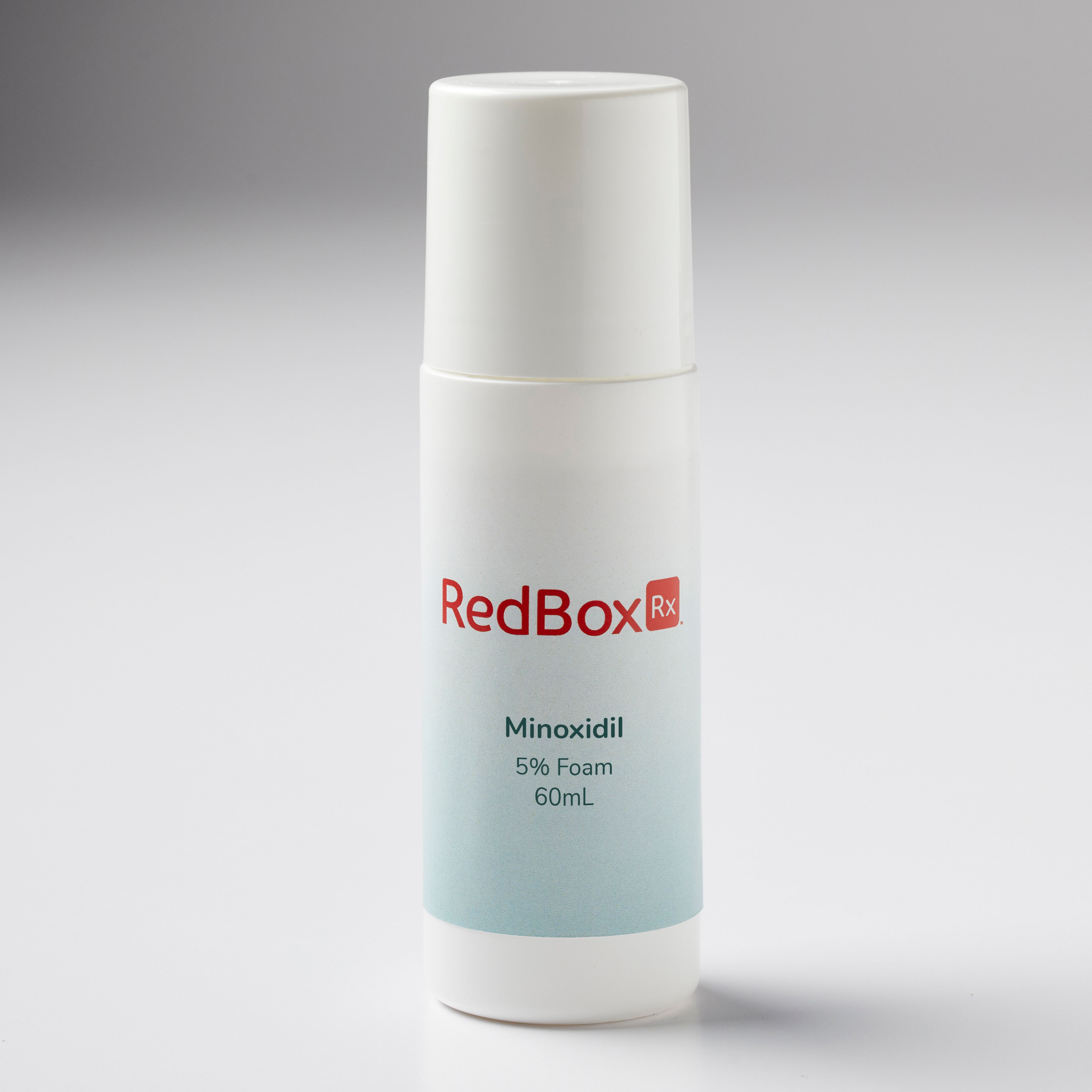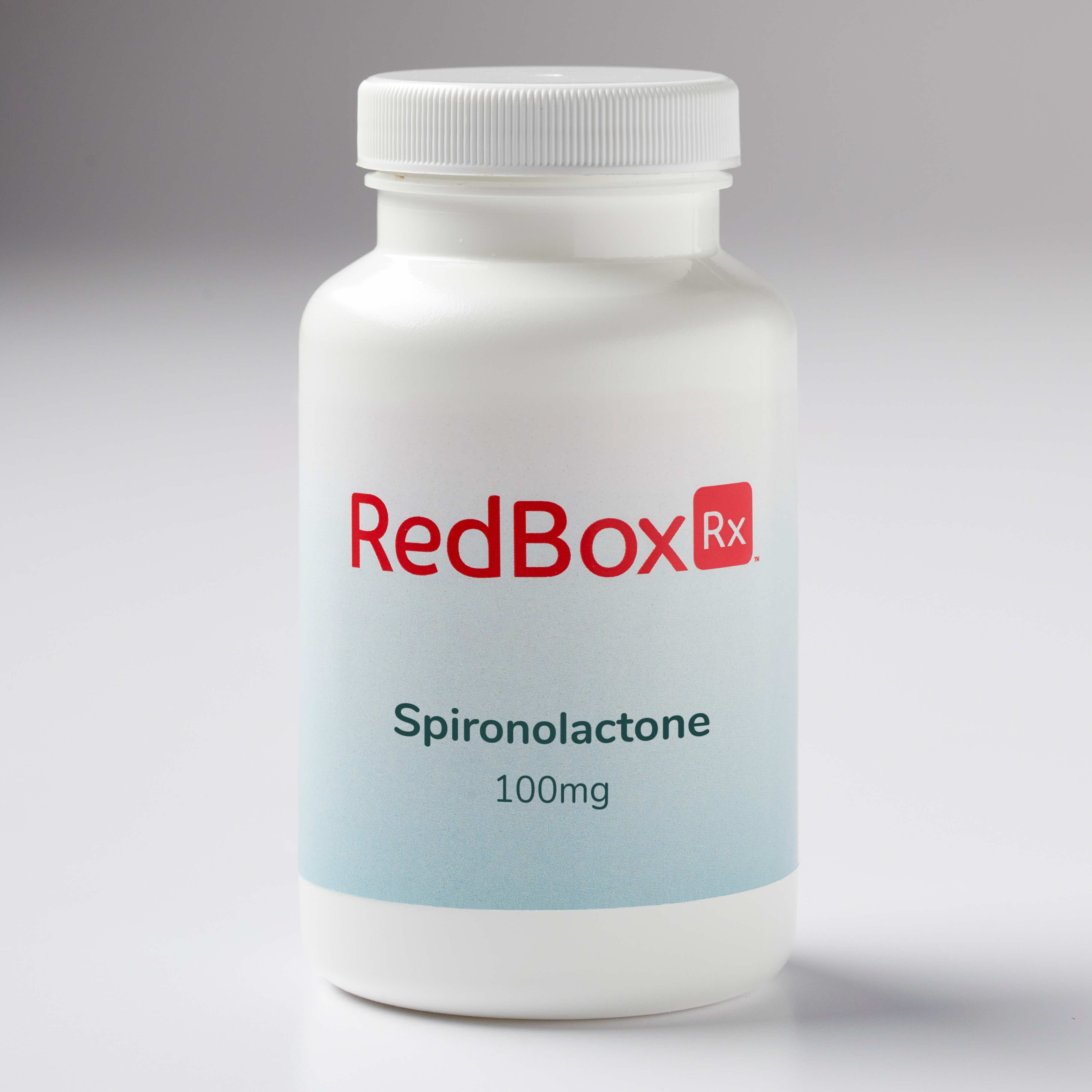About Hair Loss
The medical term for hair loss is alopecia. It is one of the most common disorders that dermatologists diagnose and treat. It can affect just your scalp or your entire body, and it can be temporary or permanent.
-
It can be the result of heredity, hormonal changes, medical conditions or a normal part of aging. Anyone can lose hair on their head, but it's more common in men.1
Both men and women can develop hereditary hair loss, also known as androgenic alopecia2, which is the most common cause of hair loss worldwide.
-
Alopecia is an umbrella term for conditions characterized by hair loss. It is not contagious, though sometimes it can be a sign of other health problems.
-
Common forms of alopecia include:
Alopecia areata, an autoimmune disease, is one of the more common types of alopecia, affecting two percent of people.3 Not all forms of alopecia are related to an immune system response.4
Alopecia Totalis (AT): Complete loss of hair on the scalp.5
Traction Alopecia: Hair loss triggered by repeatedly pulling or tightening hair in the same direction.6
Alopecia Universalis: A rare condition where a person loses all the hair on their body.7
Scarring Alopecia: Inflammatory skin conditions (cellulitis, folliculitis, acne), and other skin disorders (such as some forms of lupus and lichen planus) often result in scars that destroy the ability of the hair to regenerate.8
Cicatricial Alopecia: Experts don’t entirely understand the causes of this inflammatory condition. It sometimes develops after the skin is damaged by a burn or severe infection. Hair loss may occur slowly in patches or more rapidly in larger areas. The skin underneath may also become itchy and inflamed.9
Frontal Fibrosing Alopecia: A form of lichen planopilaris, it usually causes slow but progressive hair loss, usually just above the forehead. The eyebrows and eyelashes may also be affected.10
-
Scientific research has not reached a conclusive answer about the relationship between wearing hats and hair loss. However, it’s possible that wearing hats that are very tight — or very hot — could decrease blood flow to the hair follicles, stressing them and causing them to fall out. This hair loss would be temporary at first, but it could progress to permanent hair loss.11
-
Dandruff is a skin condition and not a cause of hair loss.12
-
Seborrheic dermatitis does not cause hair loss.13 However, hair loss is closely associated with seborrheic dermatitis because increased sebum production can create irritation and inflammation on the scalp, which can cause intense itchiness. Scratching the scalp can damage hair follicles, which obstructs natural hair growth, causing hair to fall out.14
Scalp psoriasis is a common skin disorder. Scalp psoriasis itself doesn’t cause hair loss. But scratching a lot or very hard picking at the scaly spots, harsh treatments, and the stress that goes along with the condition can lead to temporary hair loss. Fortunately, hair usually grows back after the skin clears.15
Sometimes there is a link between an itchy scalp and hair loss. Fungal infections, allergic reactions to hair products and inflamed hair follicles can cause the scalp to itch and also damage hair follicles, leading to hair loss.16
-
While certain shampoo ingredients may be less than ideal for healthy hair, existing evidence doesn’t point to any specific ingredient as a potential cause of hair loss.17 This includes dry shampoo and dandruff shampoos.
-
Deficiencies in vitamins A, B, C, D and E, as well as iron and zinc, have been associated with hair loss.18
-
Hard water contains a buildup of minerals, such as calcium and magnesium. This produces a film on the hair, making it difficult for moisture to penetrate.
As a result, the hair is left dry and prone to breakage.19
-
Drugs cause hair loss by interfering with the normal cycle of scalp hair growth. The severity of drug-induced hair loss depends on the type of drug and dosage, as well as your sensitivity to that drug.20
Many different types of drugs are thought to cause hair loss, including:
Acne medications containing vitamin A (retinoids)
Antibiotics and antifungal drugs
Antidepressants
Birth control pills
Anti-clotting drugs
Cholesterol-lowering drugs
Drugs that suppress the immune system
Drugs that treat breast cancer and other cancers
Epilepsy drugs (anticonvulsants)
High blood pressure medications (anti-hypertensives), such as beta-blockers, ACE inhibitors, and diuretics
Hormone replacement therapy
Mood stabilizers
Nonsteroidal anti-inflammatory drugs (NSAIDs)
Parkinson's disease drugs
Steroids
Tamoxifen blocks the estrogen receptor to prevent breast cancer.
Thyroid medications
Weight loss drugs
Hair loss is common in people who are taking chemotherapy drugs for cancer.
Chemotherapy drugs that tend to cause hair loss include:21
Adriamycin
Cyclophosphamide
Dactinomycin
Daunorubicin
Docetaxel
Doxorubicin
Etoposide
Fluorouracil
Ifosfamide
Irinotecan
Methotrexate
Nitrosoureas
Paclitaxel
Tamoxifen
Topotecan
Vinorelbine
-
In addition to hereditary, age, and alopecia areata, there are other health conditions that can lead to hair loss.
Childbirth, illness or other stressors: A few months after giving birth, recovering from an illness, or having an operation, you may notice a lot more hairs in your brush or on your pillow. This can also happen after a stressful time in your life, such as a divorce or death of a loved one.22
Thyroid disease: If you have a problem with your thyroid, you may see thinning hair. Some people notice that their hair comes out in clumps when they brush it.23
Diabetes: Diabetes can interrupt the normal cycle of the hair growth process, slowing down hair growth. Having diabetes can also cause you to lose more hair than usual. It doesn’t only affect your head. You can lose hairs on your arms, legs, and other body parts, too. When the hair regrows, it does so at a slower than usual rate.24
COVID-19: You may shed hair for 2-3 months after a COVID-19 infection. While the frequency of this has not been well-documented and may be distressing, it is normal. The medical name for this type of hair shedding is telogen effluvium. It happens when more hairs than normal enter the shedding (telogen) phase of the hair growth lifecycle at the same time. A fever or illness can force more hairs into the shedding phase. It may last up to nine months before your hair returns to normal.25
Smoking and Vaping: One of the lesser-known side effects of smoking is an increased chance of developing hair loss.26
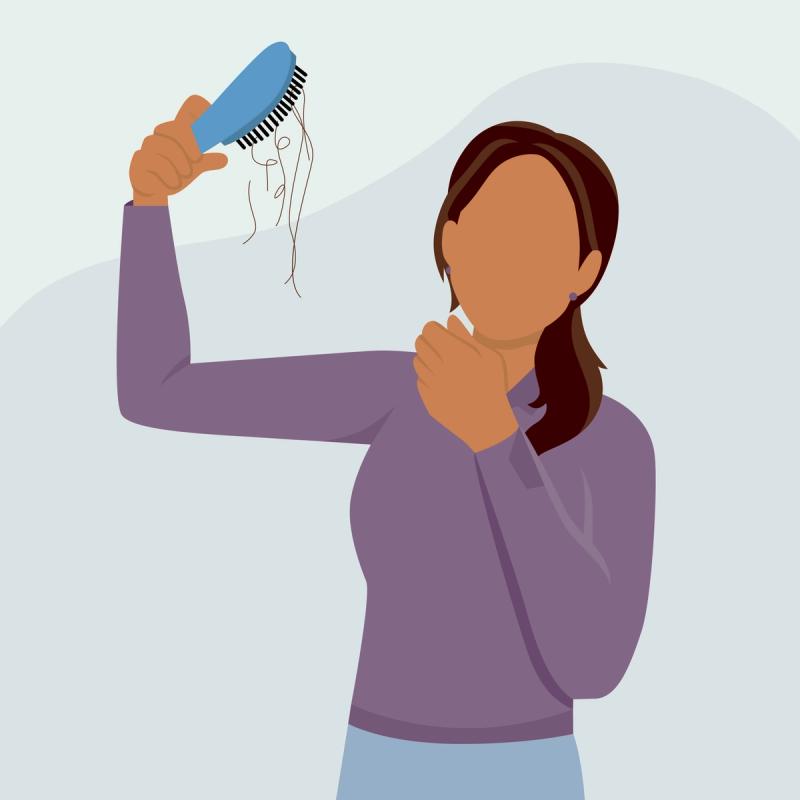
90,000
The average person will grow 90,000–150,000 hairs on their head, but a majority of them will lose some (or all) of this hair in their lifetimes due to alopecia – 95 percent of men and 40 percent of women.
Sources: BioNumbers, WebMD, NYU Langone
Sorry, we’re closed for today. Our U.S. licensed medical providers are available daily 7 a.m. to 9 p.m. CST via live video visit. We look forward to serving you soon. Email us anytime at [email protected].
What Our Patients Are Saying
-
“
I've been using Finasteride for years, which meant yearly trips to the dermatologist and monthly trips to the pharmacy. Redbox Rx has saved me that hassle for a much lower price!
Pat M.
-
“
No need to see a doctor in person. After they looked at it, everything flowed really well and I got my order quicker than I anticipated. Thank you for making it a smooth process.
Nicole K.
-
“
The provider took my needs and medical history into account before prescribing medication, which made me feel safe. Payment and shipping went flawless, met my expectations.
John D.
Hair Loss Treatment FAQs
-
Medications are available to treat pattern (hereditary) baldness. The most common options include:
Minoxidil (Rogaine®): Minoxidil is available in an oral tablet by prescription and topical formulations (liquid, foam and shampoo) which you can get by prescription or over the counter. Minoxidil is FDA-approved for both men and women. If you select minoxidil in its topical form, it is most effective to apply the product to the scalp skin once daily for women and twice daily for men. Many people prefer the foam applied when the hair is wet.1
Finasteride (Propecia®): This is a prescription drug for men. You take it daily as a pill. Many men taking finasteride experience a slowing of hair loss, and some may show new hair growth. It may take a few months to tell whether it's working for you.2
Spironolactone (Aldactone®): This is a prescription drug women can use for androgenic alopecia.3, 4
Other options include off-label use of oral Dutasteride (Avodart®) for men.
-
Hair growth usually occurs after minoxidil has been used for several months and lasts only as long as it continues to be used. Hair loss will begin again within a few months after minoxidil treatment is stopped.5
-
Finasteride takes a while to work. It relies on adjusting your hormone levels, which doesn’t happen overnight. If you take Propecia once a day, you should start to see results within 3-6 months. Final results can be visible 6-12 months after starting treatment.6
-
Spironolactone is only used to treat female hair loss. Spironolactone slows down the production of androgens. These are male sex hormones, including testosterone. Reduced production of androgens can slow down the progression of hair loss caused by androgenic alopecia. It can also encourage hair to regrow.7
Spironolactone takes a while to start working for hair loss. Most people need to take it for at least six months before they start seeing results. Others might not notice any benefits until they’ve taken it for at least a year.8
-
Shampoos can’t treat the cause of your hair loss, but some ingredients are better than others.9
If you’re experiencing hair loss, pick a shampoo that’s moisturizing and includes an active ingredient like ketoconazole10 to improve hair health.
-
The type of temporary hair loss caused by a stressor or change to your body is called telogen effluvium.
Acute stress hair loss lasts fewer than six months, and your hair loss tends to happen two to three months after a stressor or change to your body. In 95% of cases, acute telogen effluvium goes away (resolves).11
Chronic stress hair loss lasts longer than six months. It affects your entire scalp and may not have a clear cause. You may lose your hair in handfuls during the early stages, but it won’t cause total baldness.12
Because one of the main causes is a stressor on your body, it’s important to identify the cause. Once you address the cause, most cases will resolve without treatment within six to eight months.13
Even though stress hair loss should resolve on its own, common treatments may include medications like minoxidil tablet or minoxidil foam, taking multivitamins or supplements that contain iron and biotin and modifying your hairstyle technique.14
-
Collagen may help improve your hair by providing amino acids and helping to fight damaged hair follicles. It may also slow down thinning and greying.15 However, research on the effects of collagen on human hair is limited.
If you’re interested in trying collagen to improve your hair, consider bone broth or supplements that can be mixed into food or drinks. You can purchase collagen supplements at local retailers or online.16
-
A well-balanced diet is the first key to healthy hair. But you may still need extra help to kick-start your hair restoration.17
The best vitamins for hair growth include B vitamins, vitamin D, vitamin E, zinc, biotin and iron.18
In addition, pumpkin seed oil, capsaicin and isoflavone, omegas 3 and 6 with antioxidants, apple nutraceutical and other nutritional supplements may help with hair loss.19
How RedBox Rx Works
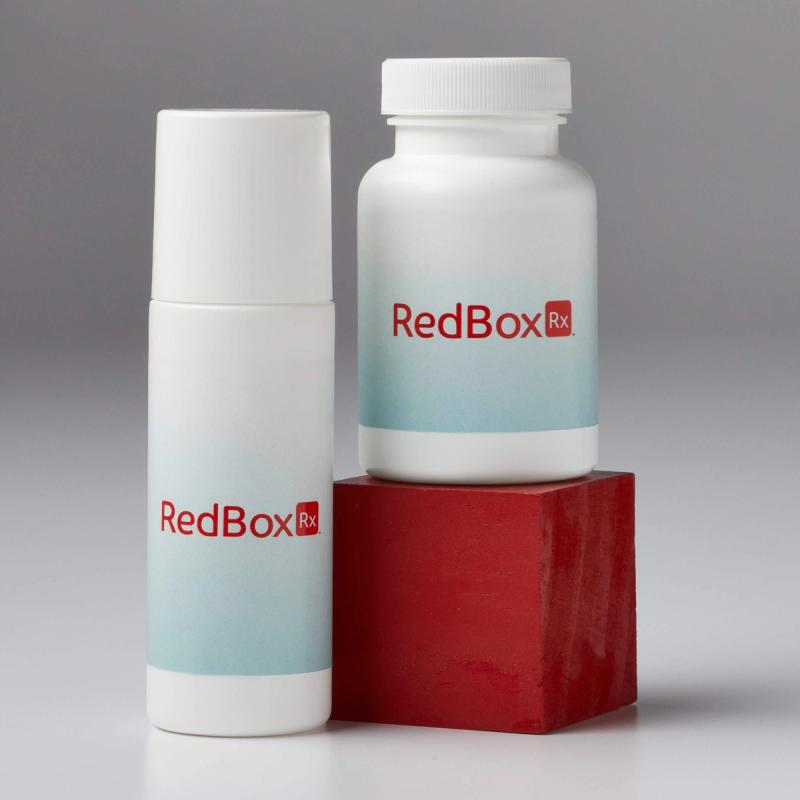
Why Choose RedBox Rx
Wide selection, easy process and low prices.
- Free online assessment with U.S. licensed medical provider.
- Meds starting at $10 per month.
- Flexible prescription options.
- Confidential, private and secure.
- Free standard shipping or expedited/overnight available.
Sorry, we’re closed for today. Our U.S. licensed medical providers are available daily 7 a.m. to 9 p.m. CST via live video visit. We look forward to serving you soon. Email us anytime at [email protected].

